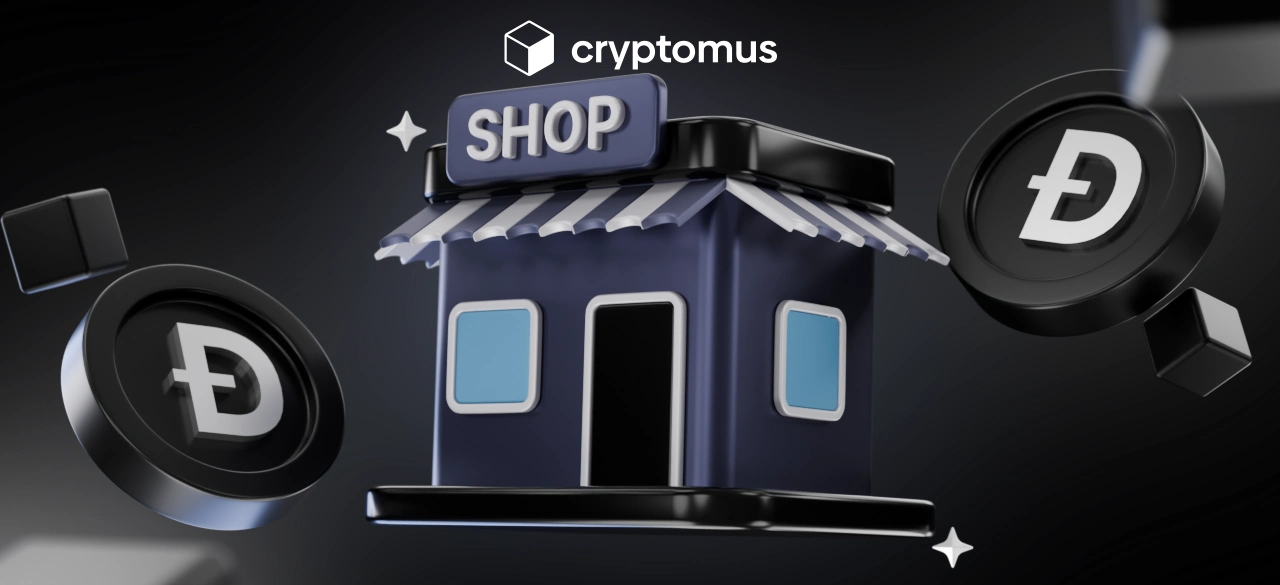
Everything You Should Know About Cryptocurrency Payment Processing
Table of Contents
Cryptocurrency is a digital form of currency that operates independently and securely. It doesn't rely on a central authority, but uses cryptography for transactions. It's decentralized, meaning there's no single governing body, and instead relies on blockchain technology. Blockchain is a transparent, secure and immutable distributed ledger.
Cryptocurrency emerged in 2009 with the introduction of bitcoin by an anonymous individual or group known as Satoshi Nakamoto. Bitcoin was the pioneering cryptocurrency that demonstrated the potential of digital currencies.
As businesses around the world have realized the benefits of accepting cryptocurrency, major corporations have begun to embrace this form of payment. This increased adoption has led to widespread recognition and acceptance of cryptocurrencies in mainstream commerce.
Cryptocurrency processing involves the handling of cryptocurrency transactions, including the settlement process and payment processing. It includes steps such as initiating, verifying, and completing transactions.
Here's a simplified summary
• Transaction Initiation: Someone initiates a transaction to transfer cryptocurrency to another person or address.
• Transaction Verification: The transaction is verified to ensure it's valid and not fraudulent. This is done through processes such as mining or other consensus algorithms.
• Transaction Confirmation: Once verified, the transaction is added to a block and becomes a permanent part of the transaction history, known as the blockchain.
• Transaction Settlement: Upon confirmation, ownership of the cryptocurrency is transferred from the sender to the recipient. Account balances are updated accordingly. The cryptocurrency settlement process ensures a safe and efficient transfer of ownership.
• Payment Processing Crypto: Cryptocurrency payment processing involves handling the transactional aspects of cryptocurrency payments. This includes verifying the payment, confirming the transaction, and updating account balances. Payment processors play a critical role in facilitating seamless and secure crypto payments.
• Security Measures: Measures are taken to protect against hacking, fraud, and unauthorized access to cryptocurrency wallets or exchanges. Encryption and other security protocols are used to ensure the security of funds and transactions.
Cryptocurrency processing is essential for individuals using cryptocurrency wallets and companies facilitating crypto transactions. It enables secure and decentralized value transfers, while settlement and payment processing ensures efficient and reliable transactions in the crypto ecosystem.
The cons of crypto processing
• Volatility: Cryptocurrency price volatility can pose a risk to merchants due to the fluctuating value of payments received.
• Limited Acceptance: Cryptocurrencies are not widely accepted, making it difficult for merchants to find customers willing to use them for transactions.
• Regulatory Uncertainty: The evolving regulatory environment surrounding cryptocurrencies can create compliance challenges and increase legal and regulatory risks.
• Technical Complexity: Integrating cryptocurrency payment processing may require technical expertise and specialized infrastructure, or reliance on third-party processors.
• Lack of Consumer Protection: Cryptocurrencies typically offer limited consumer protection mechanisms, making it difficult to recover funds or seek recourse in the event of fraud or disputes.
• Energy Consumption: Some cryptocurrencies, such as bitcoin, have high energy consumption, raising environmental concerns.
• Merchants should carefully evaluate these drawbacks to determine whether the benefits of crypto processing outweigh the associated risks in their specific business context.
Benefits associated with crypto processing
Lower Fees
One of the main benefits of accepting cryptocurrencies is the reduction of transaction fees. Traditional payment methods often involve intermediaries, resulting in additional fees. Cryptocurrencies eliminate or significantly reduce these fees, saving merchants money.
No Chargebacks
Chargebacks, a common problem with traditional payment methods, occur when a buyer disputes a transaction and requests a refund. Cryptocurrency transactions, once confirmed, are irreversible, mitigating the risk of chargebacks for merchants.
Reliable Funding
Cryptocurrency payments offer merchants a reliable source of funding. Traditional financial systems may have limitations or restrictions, especially for cross-border transactions. Cryptocurrencies provide a seamless and efficient solution, allowing merchants to access funds quickly and securely.
Fraud Protection
Cryptocurrency transactions are secure and protected by cryptographic algorithms. This inherent security reduces the risk of fraud and protects merchants from unauthorized transactions or identity theft.
Easy Implementation
Integrating cryptocurrency payment processing into existing systems is relatively easy, thanks to the availability of easy-to-use payment gateway solutions and APIs. Merchants can quickly adapt to accepting cryptocurrencies without significant technical expertise.
Instant Cash Flow
Unlike traditional payment methods that involve processing delays, cryptocurrency transactions offer near-instantaneous settlement. This fast cash flow allows merchants to streamline their operations and access funds without delay.
The crypto settlement process ensures efficient and secure transaction settlement in the cryptocurrency ecosystem. It involves the confirmation and validation of transactions on the blockchain, guaranteeing the integrity and immutability of the transaction history.
A crypto processing company specializes in providing services for the efficient and secure processing of cryptocurrency transactions. These companies handle various aspects of cryptocurrency payment processing, including transaction validation, conversion to fiat currency if required, and merchant settlement.
Cryptocurrencies vary in transaction speed and settlement time. Some cryptocurrencies excel in fast transaction processing, allowing for near-instantaneous settlement. These cryptocurrencies provide merchants with quick transaction confirmations and immediate access to funds.
By incorporating crypto settlement processes and partnering with a reputable crypto processing company, merchants can benefit from the lower fees, fraud protection, reliable funding, ease of implementation and near-instant settlement associated with cryptocurrencies. In addition, Leverage the fastest processing cryptocurrency can further improve transaction speed and cash flow for merchants.
How Merchants Can Accept Cryptocurrencies
Integrating with a Payment Gateway
Merchants can accept cryptocurrencies by integrating with a payment gateway that supports crypto payment processing. These payment gateways act as intermediaries, facilitating the conversion of cryptocurrency payments into traditional fiat currency.
Hosted Checkout Forms
Hosted Checkout Forms provide an alternative method for accepting cryptocurrency payments. Merchants can embed a secure form on their website that allows customers to make payments directly using their preferred cryptocurrency.
The Future of Cryptocurrency Processing
Widespread Adoption and Industry Leaders
The future of cryptocurrency processing looks promising, with a growing number of businesses embracing digital currencies. Industry leaders and crypto payment processing companies are continually exploring innovative solutions to make cryptocurrency payment processing more accessible and user-friendly.
Value for Merchants
As cryptocurrency payment processing grows, merchants will benefit from a broader customer base and the ability to tap into the global cryptocurrency market. Accepting cryptocurrency can increase revenue streams and open up new opportunities for growth.
Bridging the Gap for Digital Currencies
Cryptocurrency processing companies play a critical role in bridging the gap between traditional financial systems and the emerging digital economy. They enable the seamless integration of cryptocurrencies into everyday transactions, fostering broader adoption and utility.
Cryptocurrency payment processing offers numerous benefits to merchants, from lower fees and improved security to streamlined operations and increased cash flow. As the world continues to embrace digital currencies, it is imperative for businesses to explore the opportunities and benefits of accepting cryptocurrency as a form of payment. By integrating with reliable crypto processing companies and leveraging the latest technology, merchants can position themselves at the forefront of the evolving financial landscape.
Simplify Your Crypto Journey
Want to store, send, accept, stake, or trade cryptocurrencies? With Cryptomus it's all possible — sign up and manage your cryptocurrency funds with our handy tools.
Get Started









